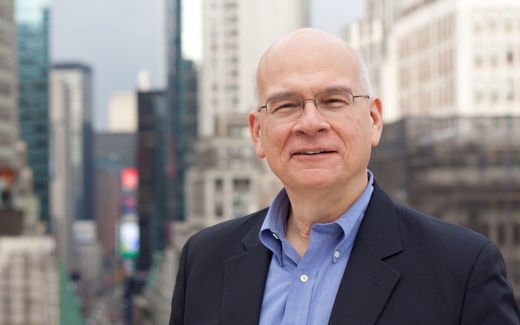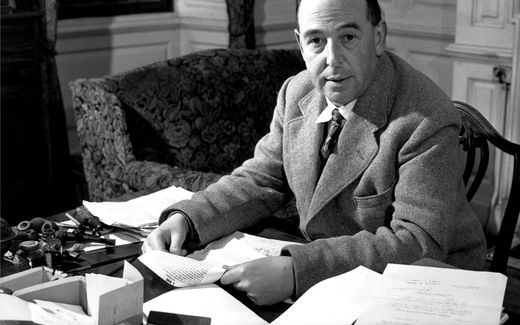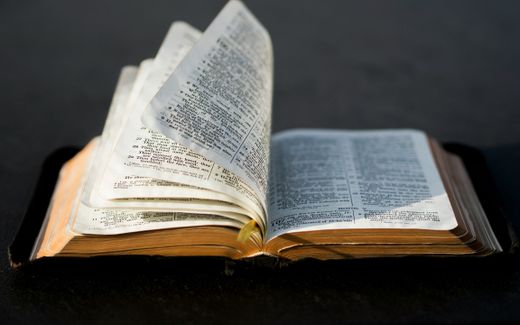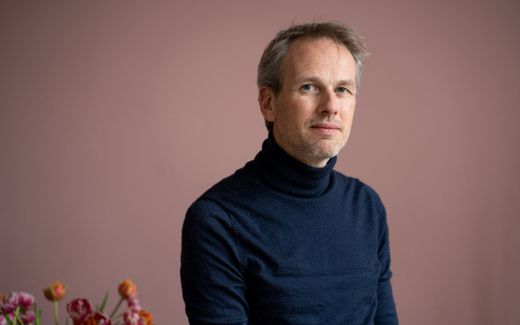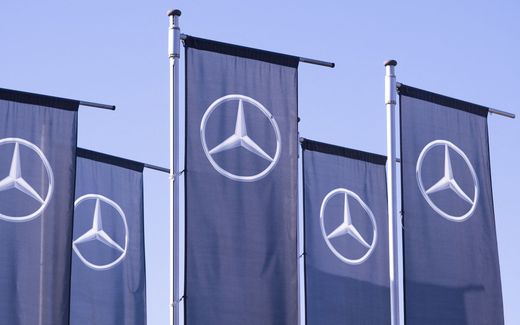Thomas Aquinas’s theology is full of compromise, says Leonardo De Chirico
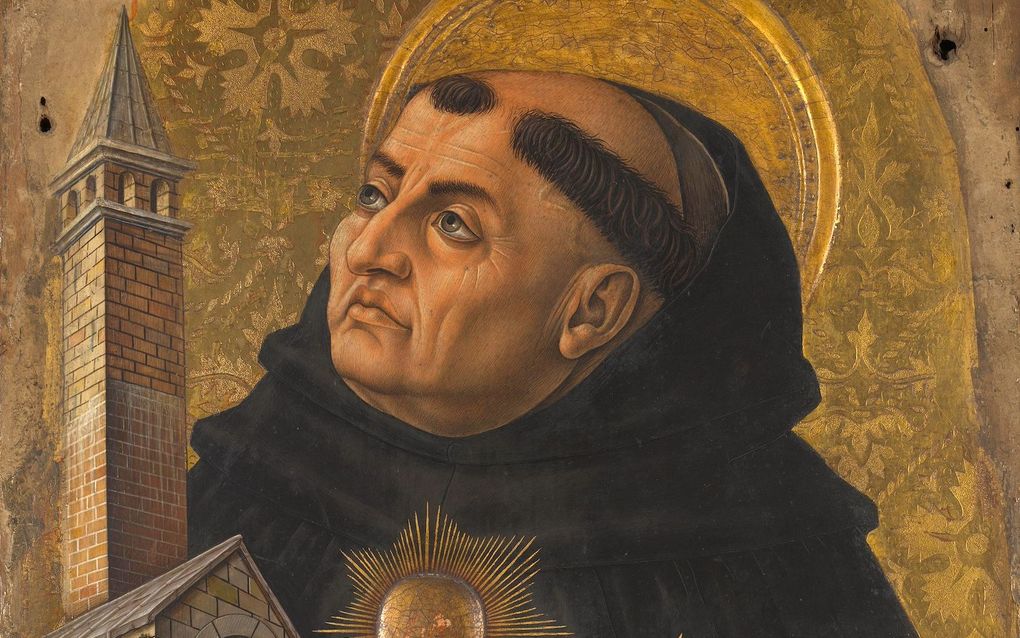
Thomas Aquinas. Photo Wikimedia
Christian Life
For Thomas Aquinas, sin was not important enough to discuss at the beginning of his works. You must read for a long time before hearing him speak about sin. Still, Thomas is a theologian whom no one can ignore.
We are in the midst of an “Aquinas season,” you could say. This year, we are 750 years after his death in 1274. Next year, we are 800 years after his birth in 1225.
For the Italian pastor and theologian Dr. Leonardo De Chirico, enough reason to give his analysis of this monumental figure. This year, he published Engaging with Thomas Aquinas: An Evangelical Approach.
For De Chirico, this book should come at some point since he has been working on Thomas for decades. “In trying to grasp Roman Catholic theology from an evangelical point of view, Thomas is always a central figure that you encounter,” he says in an explanation.
He has seen that more evangelicals show interest in the medieval theologian. “The time had come to note down my reflections on Thomas.”
After 800 years, most people are forgotten. What is still current at Thomas?

“Well, he is the founder of a school that still exists. His legacy is still present in universities and theological study programs. In the nineteenth century, Thomas was not only elevated to a saint and a doctor of the church, but also to the rank of the supreme expression of Catholic thought.
Because of that, there has been a consistent interest in Thomas across the centuries. No wonder he has attracted more attention after his lifetime than during.”
What is unique about him then?
“A combination of several factors. On the one hand, he has lofty theological and philosophical insights. This is combined with a mystical, contemplative and spiritual experience. The breadth of this thought is remarkable in philosophy, exegesis, etcetera.
He was also a man who framed his thoughts in a scholastic way. Augustine, to name another giant, has never written a systematic theology. And by working systematically, he has become a reference point for the generations after him.”
We meet here at the meeting of the European Leadership Forum in Poland. During a seminar, you said that Thomas tried to find common ground with the universities to speak about God. That sounds like what Christian scientists do now in the academic world. Is there a similarity?
“Yes, there is. If you are in the academic world now, engaging with the mainline narrative or what’s called the majority report is your responsibility. During Thomas’s days, this was the Greek philosopher Aristotle.
Before him, it had been the Augustinian platonic synthesis, but that was replaced by another paradigm. Every generation is inevitably to discover the paradigm in its environment and time.
Nobody questions Thomas’s engagement with Aristotle. However, whether he remained faithful to the integrity of the Christian faith is still under discussion.”
Today, the academic word is secular. But in Thomas’s times, universities were built on a Christian fundament, weren’t they?
“Not completely. They were built on an Aristotelianised version of Christianity. But that is not the same as a thoroughly Christian worldview. Thomas tried to bring that integration.
The framework he created functioned until the Enlightenment. Then, it was replaced by a more empiricist framework in which theology could no longer claim a position for itself. That’s why it was gradually expelled from universities.
That development is still going on. But because of Thomas, theology had been able to have a place around the table at the university for three or four centuries.”
You said you are not the first Protestant to read Thomas. How have Protestants received Thomas?

“Oh, that is varied. Martin Luther, for instance, was very critical. He was an Augustinian monk, but he had read some Thomas Aquinas. He was against scholasticism. For him, this was part of the mortal sin to make a work-based theology. Some other Protestants have agreed with Luther that Thomas distorted the message of the Bible.
But there were also other reformers, most of the second generation. Martin Bucer. He came from the same Dominican order as Thomas. He had studied in his works, as did Peter Martyr Vermigli. They would use the same scholastic methodology and the same argumentation style.
Of Calvin, we are not sure whether he had read Thomas so much. He had been trained as a lawyer, so reading Thomas was not self-evident, as it was for theology students.”
What is that scholastic argumentation?
“That is the very fine method of the premise, the consequences, the pros and cons. It looks like Aristotle’s four causes: the instrumental, the material, the moral and the conclusion. That is scholasticism.
Some Reformers use this style of argumentation. Some have quoted Thomas favourably, too, but only occasionally when they saw him in line with biblical teaching. However, they would never endorse Thomas as a fully orbed theological system. Because he also wrote extensively about the Mariology, the sacraments and the ecclesiology. All this was seen as too much compromised.”
You have mentioned some authors from the time of the Reformation. But how do Protestants look at him today?
“Well, there is still this spectrum. Some of them like him, some of them not. He receives the most support when he writes about the attributes of God. But no Protestant that I know embraces his system as Catholics do.
It is questionable whether you could pick and choose in Thomas’s work. All that he says is connected to other parts. You cannot slice it if it were a cake.”
In a seminar, you gave the example of the doctrine of sin. That is placed in the latest part of his work. Would it be possible for a Protestant to do such?
“Personally, I don’t think so. Sin is so central in our view of salvation. Apart from this, Thomas has a milder view of sin. In the architecture of his work, sin is a relatively minor incidence. This paved the way for the Council of Trent to reject the Reformed doctrine of sin and grace.”
One of your other books is about whether Catholics and Protestants believe the same gospel. How would you answer this question?
“Yes and no. Yes, in the sense that the words, of course, are the same. Most of the words. However, both groups have their own words, like transubstantiation or the veneration of Mary. But in a sense, the gospel is there.

In another sense, all these words have different meanings and content. They are understood differently. Sin is just one example. And related to sin, you have salvation, the church, devotions and the afterlife. If you scratch the surface of these words, you see the difference. We should not underestimate the differences.
Two or three generations ago, it was important to underline the differences and safeguard the separation. In our generation, the pendulum has swung to the other extreme. We all want to see commonalities and won’t talk about differences. I think we should be aware of both. We cannot deny the differences. Think about the most recent dogma of papal infallibility.
We cannot deny that the Catholic Church has taken a different direction. We are not anti-Catholic. But we want to be faithful to the gospel.”
To what extent is your expertise rooted in your own biography?
“Well, I was born in a Catholic family in the Catholic country of Italy. So, I have absorbed Catholicism from my mother’s milk.
When I was a child, my father became a Protestant. He was a nominal Catholic before. Be he went through a personal crisis in which he could not find answers. In God’s providence, he met with a believer who invited him to read the Bible. That was the beginning of a discovery. I remember people around the kitchen table studying the Bible. Some neighbours, my older brother, and myself as a kid. That was my entry point into the Protestant faith. Later, as a teenager, I embraced the gospel with a personal commitment.”
Leonardo De Chirico
Prof. Dr. Leonardo De Chirico is pastor of Breccia di Roma, a church plant in Rome that started in 2009. He also planted an evangelical church in Ferrara, Italy, in 1997.
De Chirico was vice-chairman of the Italian Evangelical Alliance from 2003-2021.
He received a PhD in theology from King’s College in London, UK.
He is a professor of Historical Theology at Istituto di Formazione Evangelica e Documentazione in Padova, Italy. Additionally, Leonardo is the Director of the Reformanda Initiative, which aims to equip evangelical leaders to understand Roman Catholicism better and engage with Roman Catholicism, and the leader of the Rome Scholars & Leaders Network (RSLN).
He has written several books about the difference between Roman Catholic and Protestant theology.
Related Articles


